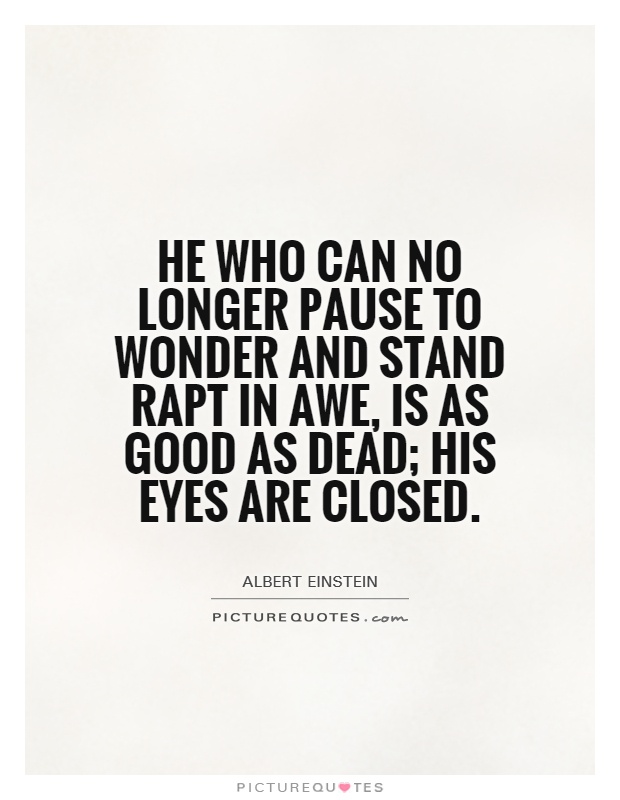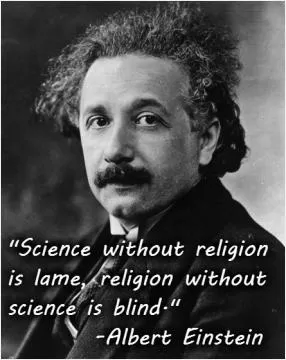He who can no longer pause to wonder and stand rapt in awe, is as good as dead; his eyes are closed

He who can no longer pause to wonder and stand rapt in awe, is as good as dead; his eyes are closed
Albert Einstein, one of the greatest minds in human history, understood the importance of wonder and awe in the pursuit of knowledge. He believed that curiosity and a sense of wonder were essential for intellectual growth and discovery. In his famous quote, “He who can no longer pause to wonder and stand rapt in awe, is as good as dead; his eyes are closed,” Einstein emphasizes the significance of maintaining a sense of wonder and curiosity throughout one’s life.Einstein himself was known for his insatiable curiosity and his ability to see the world in a different way. He was constantly questioning the nature of the universe and seeking to understand the mysteries of the cosmos. His groundbreaking theories of relativity and quantum mechanics revolutionized our understanding of the physical world and paved the way for countless scientific advancements.
Einstein’s quote speaks to the idea that a person who loses their sense of wonder and awe is missing out on the beauty and complexity of the world around them. When we stop being curious and questioning the world, we limit our potential for growth and discovery. Einstein believed that it was this sense of wonder that drove him to explore new ideas and push the boundaries of human knowledge.
In today’s fast-paced world, it can be easy to get caught up in the daily grind and lose sight of the wonders that surround us. However, Einstein’s words serve as a reminder to pause, take a moment to appreciate the beauty of the world, and allow ourselves to be amazed by the mysteries of the universe.












 Friendship Quotes
Friendship Quotes Love Quotes
Love Quotes Life Quotes
Life Quotes Funny Quotes
Funny Quotes Motivational Quotes
Motivational Quotes Inspirational Quotes
Inspirational Quotes